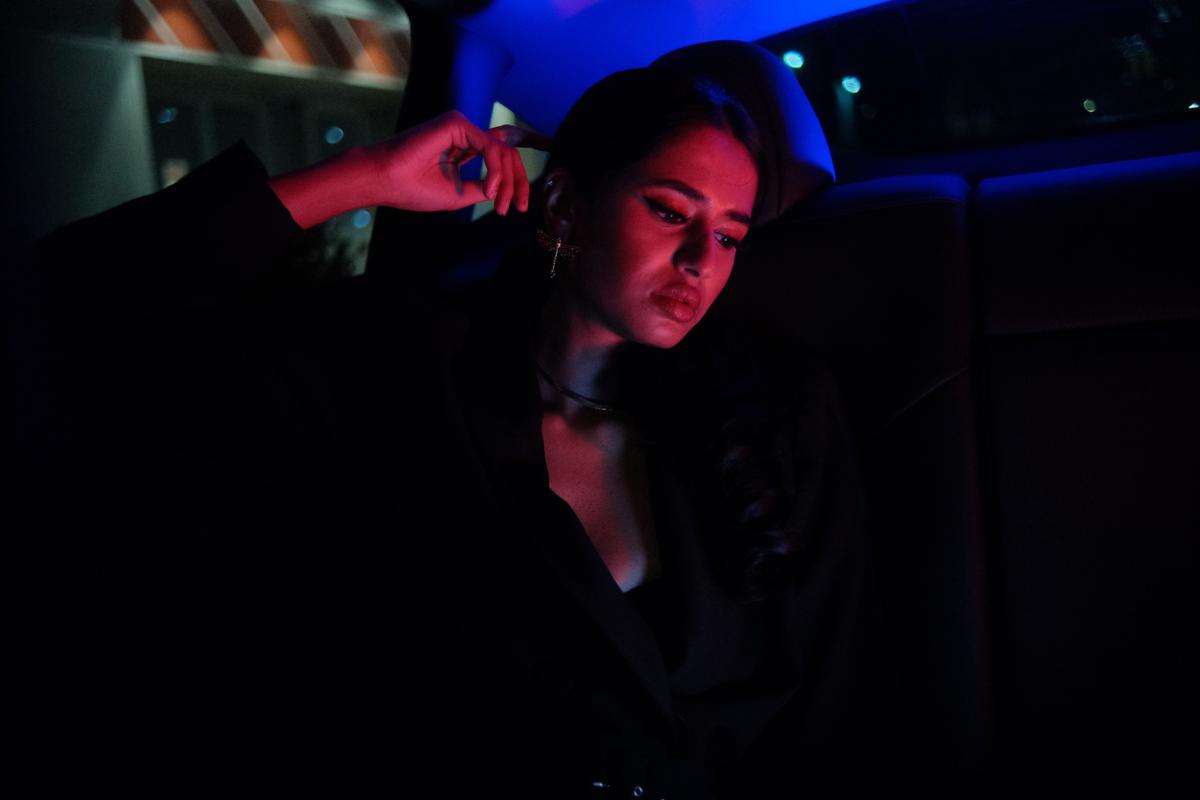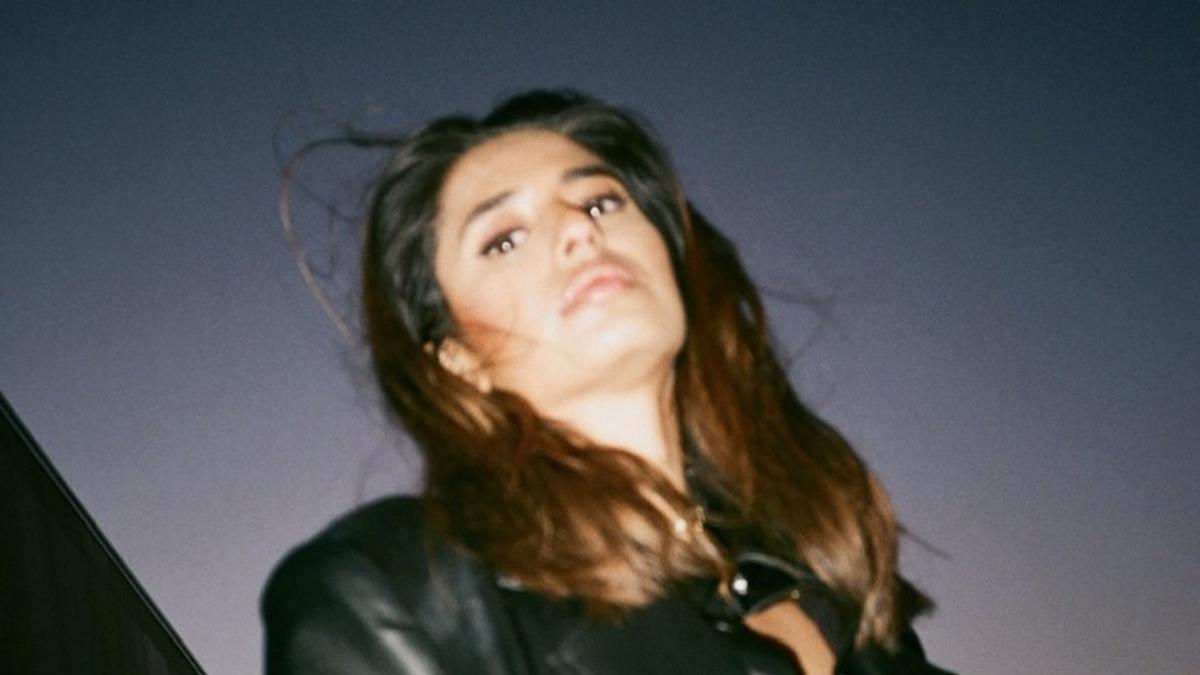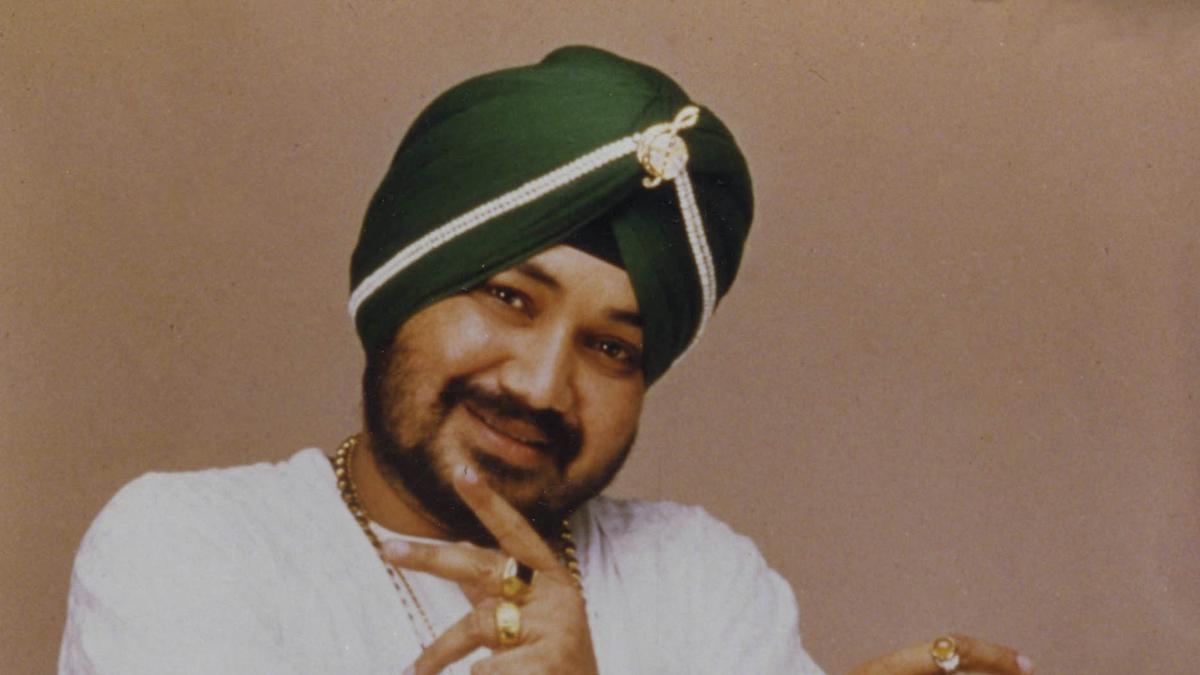What happens when you combine your favourite Western pop artist with Bollywood? New York based singer-songwriter SANJ has the answer. Her Instagram page ‘xoxosanj’ is filled with mashups of popular English songs and Bollywood songs, melded together with sultry R&B-influenced vocals. After two years of posting these mashups on social media, and amassing over 33k followers on Instagram, the 26 year-old is set to release her debut album, “Nightingale,” on February 24.
“Nightingale,” which is also what SANJ’s mother calls her, fuses the East and the West. Raised in a predominantly white suburb near Chicago, by parents hailing from Chennai and Bengaluru, SANJ found herself straddling two worlds: one where she immersed herself Bollywood music and amateur song and dance performances at functions, and another where she felt pressured to fit in and suppress her culture.
SANJ said it wasn’t until she graduated from Indiana University, another predominantly white institution, that she stopped caring. “That’s when I realised what my culture has done for me, and what growing up with these strong roots has done in terms of my artistry, my musicality. That’s how I grew into this genre.”
SANJ says her 12-odd years of Carnatic music training became the “building blocks,” of her music. But she only started considering music as a career after high school, when she wrote her first song. Although she uploaded her music on social media sporadically in the past, it wasn’t until she began posting mashups of covers on TikTok in November of 2021 that things started taking off. Her rendition of Sad Girls Luv Money, by Amaarae and Kali Uchis, and Jiya Jale, from the Hindi movie Dil Se, which currently has 428.5K likes on TikTok, encouraged her to keep blending the two genres. She said she didn’t plan to add Jiya Jale to the cover, but knew that something “was missing.”
“I think its just all the experience I had growing up with the training and watching Bollywood movies, and having the ingrained in me inherently just made [ Jiya Jale] organically come out.” She said her inspirations range from Rahat Fateh Ali Khan, Lata Mangeshkar, and A.R. Rahman to The Weeknd, Ariana Grande and Selena Gomez.
SANJ
She adds she believes what intrigues her listeners is that the Indian and Western elements don’t “overpower each other. You still feel like it’s a kind of genre of pop or R&B.”
Although SANJ says the response has been mostly positive, especially from the diaspora community, putting your work on social media means subjecting yourself to criticism as well. “The negative comments have actually been from people in the Indian community,” she said, who take issue with things like her pronunciation or her American roots. “People are always going to question what you’re doing. They don’t know me at the end of the day and that’s okay. I am not perfect,” she said, adding that she one of her goals is to learn to speak Hindi fluently.
While SANJ’s music largely sits in what she calls the desi R&B genre, this blending of South Asian and Western music has become increasingly popular among aspiring musicians. British-Pakistani singer Leo Kalyan’s mashups have amassed them 93.5k followers on Instagram, and a gig at Sonam Kapoor’s baby shower. Canadian-Indian singer Tesher, went viral with his song Jalebi Baby, which samples Jalebi Bai.
In Nightingale, SANJ uses pieces of iconic songs to unpack the complexities of love and heartbreak. Bindaas, begins with a reverbed clip of Silsila Yeh Chahat Ka, and then supports the fast-paced chorus, with the faster version of the tabla from the original song.

SANJ
“I kind of contrast the message of the song. I’m still in love with this person, so I’m showing the angry side of me, but also the vulnerable side of me [through Silsila]. Bollywood music has a beautiful way of showing vulnerability, romance and deep feelings.”
SANJ doesn’t shy away from being direct in her songs. The album’s lead single, Devil’s in the Details, begins with a phone recording in French, inspired by a situationship she was in with a French man. She jokes that while the specificity is Taylor Swift-esque, the point of the song is to explore how wrapped up she was with this person, even though she wasn’t happy with the situation. “The reason I make music like this is to embrace the parts of ourselves that we’re not the proudest of and just celebrate it because life is about both sides of you.”



.png)



